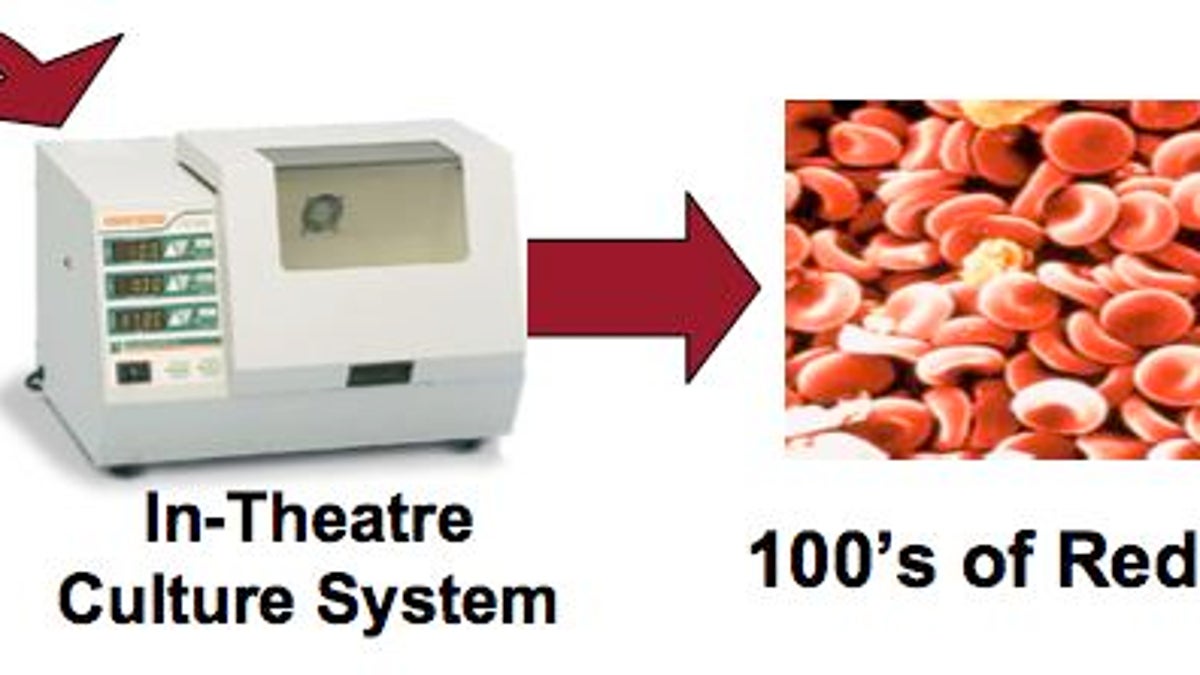Military wants 'blood pharming' machine
Military seek machine to culture and package red blood cells on the battlefield.

As much as you may miss it, you'll have to face the fact that donating blood may become obsolete someday soon.
The U.S. military is seeking an automated culture and packaging system that could produce a steady supply of universal donor red blood cells right on the battlefield, without resorting to needles and the human filling-stations (PDF).
DARPA has awarded a $1.95 million contract to Arteriocyte, a Cleveland company that's experimenting with a technology developed at Johns Hopkins that enables the rapid expansion of umbilical cord blood. The company wants to adapt it to a manufacturing technology that will feed the military's thirst for universal donor red blood units. The technology, called Nanex, uses a nanofiber-based structure that mimics bone marrow in which blood cells multiply, according to the company.
The military envisions a "fieldable" in-theater, culture-manufacturing system that would take hematopoietic progenitor cells and automatically covert those into hundreds of prepackaged, ready-to-be-infused RBC units. This process, called "blood pharming," would eliminate much of storage, transport and the donor blood type and health limitations that make RBC resupply such a challenge.
Red blood cells, which make up 40 percent of the average human's blood volume, are the most transfused blood product for trauma care, with 40,000 RBC units used in the United States every day, according to the Red Cross. A unit is 220 ml. or about a cup.